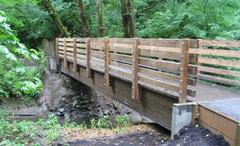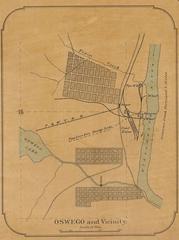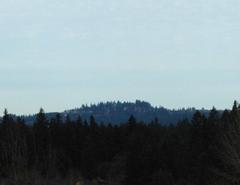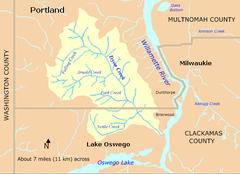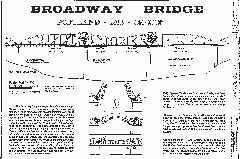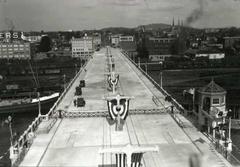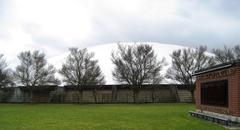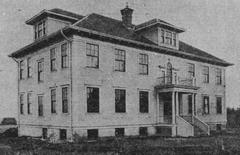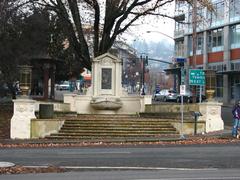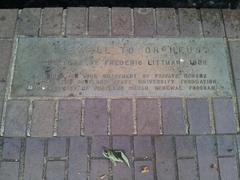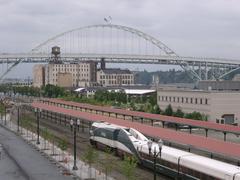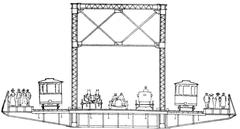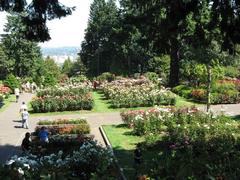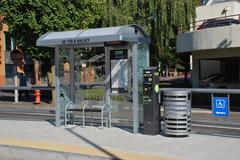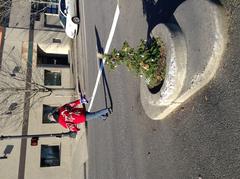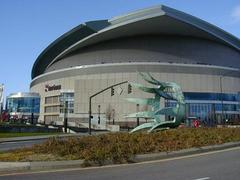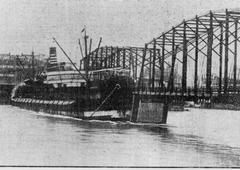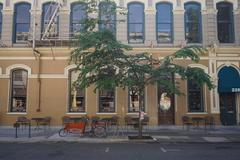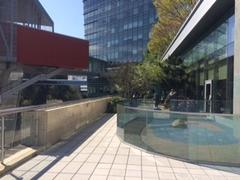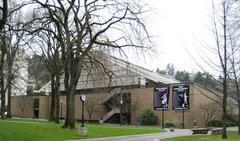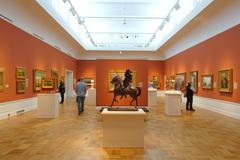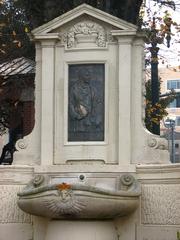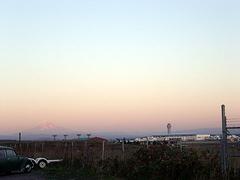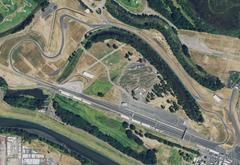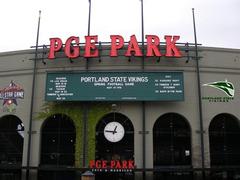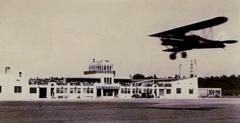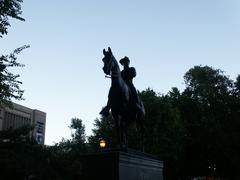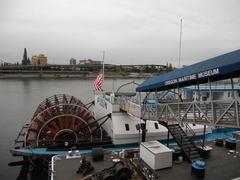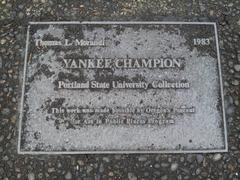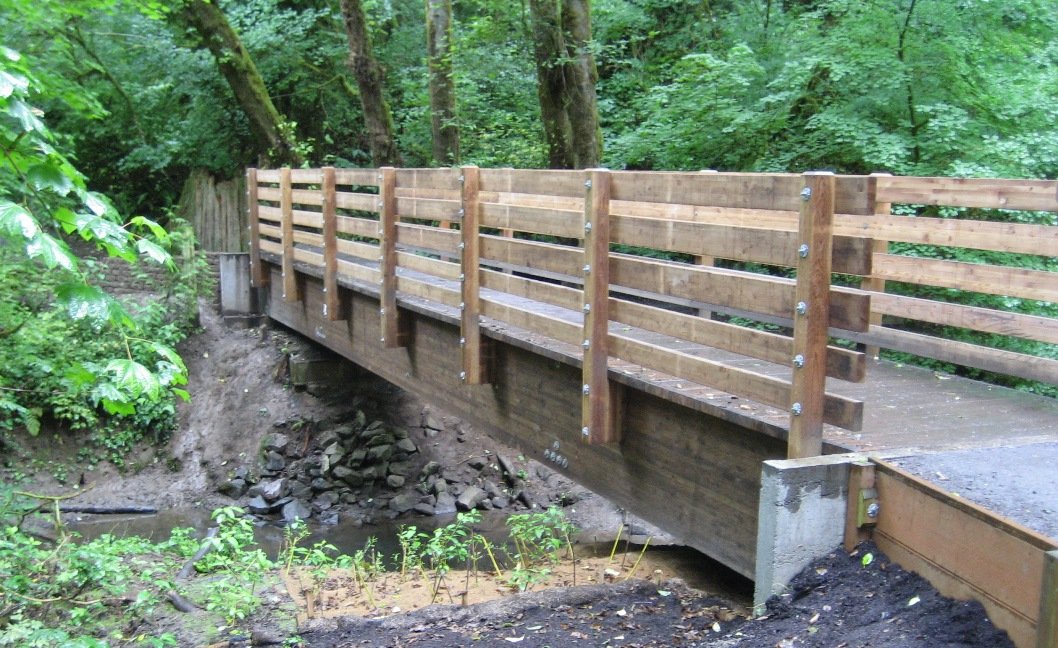
Tryon Creek State Natural Area: Visiting Hours, Tickets, and Complete Guide to Portland’s Urban Forest and Historical Sites
Date: 14/06/2025
Introduction
Tryon Creek State Natural Area is a 650+ acre urban forest oasis located on the border of Portland and Lake Oswego, Oregon. Renowned for its ecological richness, profound Indigenous heritage, and inclusive recreation, this park invites visitors to explore lush temperate rainforests, encounter native wildlife, and connect with Portland’s natural and cultural legacy. Whether you’re seeking accessible trails, educational programs, or seasonal festivals, Tryon Creek offers a rewarding experience for all ages and backgrounds (Tryon Creek Watershed Council; Friends of Tryon Creek).
This comprehensive guide details everything you need to plan your visit: park hours, ticket and accessibility information, trail highlights, historical context, nearby attractions, and practical tips for making the most of your time at Tryon Creek State Natural Area.
Table of Contents
- Indigenous Stewardship and Pre-Colonial History
- Euro-American Settlement and Early Development
- Conservation Movement and Park Establishment
- Ecological Significance and Restoration
- Visitor Information: Hours, Tickets & Accessibility
- Trail System and Activities
- Facilities and Amenities
- Cultural Revitalization and Community Engagement
- Events and Festivals
- Watershed and Urban Context
- Frequently Asked Questions (FAQ)
- Visitor Tips
- References
Indigenous Stewardship and Pre-Colonial History
Long before European settlement, the lands of Tryon Creek were home to the Willamette Tumwater, Clackamas Chinook, Multnomah, Tualatin Kalapuya, and other Chinookan-speaking peoples (Tryon Creek Watershed Council). These communities sustained a reciprocal relationship with the creek, forests, and native species, using the area for fishing, gathering, ceremony, and trade. Their stewardship practices shaped a thriving ecosystem that remains evident in the park’s diversity today.
Through collaborative initiatives and cultural events, Indigenous peoples continue to honor and reclaim their connection to Tryon Creek. Programs such as Indigenous Culture Day celebrate traditional foods, storytelling, and ecological knowledge, reinforcing the living legacy of these first stewards (Here is Oregon).
Euro-American Settlement and Early Development
The area is named after Socrates Hotchkiss Tryon, an early settler in the mid-1800s. The 19th and early 20th centuries brought rapid transformation as forests were logged, land was cleared for agriculture, and urban development expanded. Although much of the watershed was altered, the lower creek corridor retained significant natural features, setting the stage for future conservation efforts (Tryon Creek Watershed Council).
Conservation Movement and Park Establishment
Concerned citizens and conservationists initiated a grassroots movement in the 1960s to protect the remaining forested lands of Tryon Creek. Their advocacy resulted in the creation of Tryon Creek State Natural Area in 1975, securing over 650 acres as one of Portland’s largest urban natural preserves (Portland Living on the Cheap). The park’s establishment was a landmark achievement in urban conservation, ensuring public access and ecological stewardship for generations to come.
Ecological Significance and Restoration
Tryon Creek State Natural Area harbors a rare remnant of the Willamette Valley’s lowland forests. Its diverse ecosystems support prominent tree species such as Douglas-fir, western red cedar, bigleaf maple, and red alder, with an understory rich in sword fern, trillium, Oregon grape, and salal. The creek sustains native fish including steelhead trout and coho salmon, along with abundant wildlife—over 50 species of birds, deer, coyotes, beavers, and river otters (Tryon Creek Watershed Council; Travel Portland).
Ongoing restoration projects focus on improving water quality, removing invasive species, and fostering habitat resilience. Collaborative stewardship with volunteers, Indigenous partners, and local organizations ensures the park’s ecological vitality.
Visitor Information: Hours, Tickets & Accessibility
- Hours: Open daily, generally from 7:00 AM until sunset. Closing times vary seasonally between 5:00 PM and 9:00 PM (AccessTrails).
- Admission: Free. No tickets or entrance fees are required.
- Location: 11321 SW Terwilliger Blvd, Portland, OR 97219 (Friends of Tryon Creek).
- Parking: Free at the main entrance and North Horse Lot. Arrive early on weekends and event days.
- Public Transit: TriMet bus line #35 serves the main entrance. The park is accessible by bike via a 3-mile paved path along Terwilliger Blvd (TriMet).
- Accessibility: The Ruth Pennington Trillium Trail and the paved Bicycle Trail are wheelchair and stroller accessible. Accessible restrooms and parking are available.
- Pets: Dogs are welcome but must be leashed at all times.
Trail System and Activities
Explore more than 8 miles of hiking trails, 3.5 miles of horse trails, and a 3-mile paved bicycle trail. Trail options range from easy, all-abilities loops to more challenging routes:
- Ravine Trail: Scenic 0.4-mile loop with wooden bridges and lush ravine views.
- Old Main Trail: 2-mile trail connecting the Nature Center to the park’s boundaries.
- North and West Horse Loops: Equestrian-friendly trails with nearby horse trailer parking.
- Bicycle Trail: Paved, accessible path paralleling Terwilliger Boulevard for cyclists and strollers.
Trail surfaces are a mix of compacted gravel, boardwalks, and pavement for year-round use. Download detailed trail maps from the Friends of Tryon Creek or access the interactive trail map.
Popular activities include hiking, birdwatching, nature photography, seasonal wildflower viewing (especially trilliums in spring), and family-friendly guided walks. Horseback riding and cycling are permitted on designated trails.
Facilities and Amenities
- Nature Center: Open daily (9 AM–4 PM; hours may vary), featuring interpretive exhibits, a resource library, restrooms, and a nature-themed gift shop. The Nature Center is the starting point for guided hikes and educational programs (Friends of Tryon Creek).
- Restrooms and Drinking Water: Available at the Nature Center and main parking areas.
- Picnic Sites: Sheltered and open-air tables near the Nature Center and along trails.
- Equestrian Facilities: Horse trailer parking and 3.5 miles of horse trails.
- Bicycle Parking: Racks near the main entrance.
Cultural Revitalization and Community Engagement
The park is a hub for cultural revitalization and environmental education. Indigenous Culture Day and similar events spotlight traditional foods, crafts, and ecological knowledge, deepening community connection to the area’s first peoples (Here is Oregon).
The Friends of Tryon Creek and Oregon State Parks offer guided hikes, nature camps, stewardship days, and citizen science opportunities (Friends of Tryon Creek). These programs engage thousands of visitors annually, fostering a sense of shared responsibility and education.
Events and Festivals
Signature events highlight the park’s ecological and cultural importance:
- Trillium Festival (April): Celebrate spring wildflowers with native plant sales, family activities, and guided nature walks (Portland Living on the Cheap).
- Owl Fest: Focuses on local birdlife with expert-led walks and activities (Portland Living on the Cheap).
- First Day Hike (January 1): Annual ranger-led walks for all ages (Portland Living on the Cheap).
- Indigenous Culture Day: Community gathering honoring Indigenous traditions and heritage.
Check the Friends of Tryon Creek calendar for current event listings.
Watershed and Urban Context
The Tryon Creek watershed covers about 4,200 acres, with 20% protected as greenspace and the remainder urbanized (Tryon Creek Watershed Council). The juxtaposition of forest and city underscores the park’s vital role as a model for urban conservation and ecological resilience.
A 2019 watershed assessment guides restoration priorities and collaborative management, supporting the creek’s ecological health and cultural vitality (Tryon Creek Watershed Council).
Frequently Asked Questions (FAQ)
Q: What are the park’s hours?
A: Open daily from 7:00 AM until sunset (varies seasonally).
Q: Is there an entrance fee?
A: No, admission and parking are free.
Q: Are dogs allowed?
A: Yes, on leash at all times.
Q: Are the trails wheelchair accessible?
A: Yes, the Ruth Pennington Trillium Trail and paved Bicycle Trail are accessible.
Q: Can I bike or ride horses in the park?
A: Bikes are allowed on the paved path only. Horses are permitted on designated equestrian trails.
Q: Are guided tours and educational programs available?
A: Yes, the Nature Center offers scheduled guided walks and educational events. Check the Friends of Tryon Creek events page.
Q: What wildlife might I see?
A: Look for birds (including owls and woodpeckers), deer, raccoons, beavers, river otters, and native fish.
Visitor Tips
- Arrive Early: Secure parking and enjoy quieter trails.
- Dress Appropriately: Be prepared for rain and muddy trails in winter/spring, and sun exposure in summer.
- Stay on Marked Trails: Protect sensitive habitats and ensure safety.
- Carry Water and Snacks: Water available at the Nature Center; bring your own for longer hikes.
- Respect Wildlife: Observe from a distance; don’t feed animals.
- Leash and Clean Up After Pets: Protect wildlife and other visitors.
- Check Event Schedules: Enhance your visit by joining seasonal festivals or guided walks.
References
- Tryon Creek Watershed Council
- Here is Oregon
- Portland Living on the Cheap
- Friends of Tryon Creek
- TriMet
- AccessTrails
- Travel Portland
- Oregon State Parks
- Pacer
- Wikipedia
Images are for illustrative purposes and include alt text with relevant keywords for SEO.
